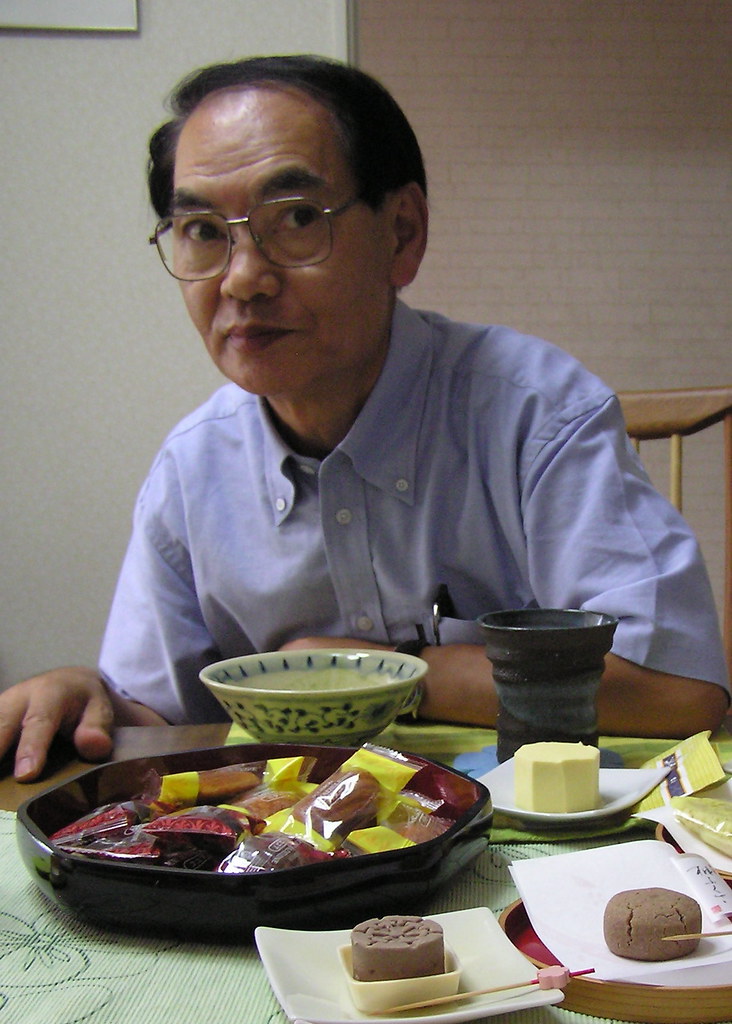
Day twenty-eight: Shokunin
Many of the men (and, on occasion, women) who make Japanese sweets are classed as shokunin, skilled practitioners of a traditional craft. Although shokunin are repositories of just the kind of technical and cultural insights I'm after, I've been warned over and over that they won't have much to say to me. Because in Japan so many skills are passed along through families (whether real or engineered), many shokunin have a vested interest in keeping curious outsiders at arms' length; too much candor could well bankrupt the family business.
But just when I had given up hope of ever saying more that hello to a wagashi (Japanese confectionery) shokunin, my new friend Natsuki Aoshika stepped in. Thanks to Natsuki and her generous family, I was able to spend the afternoon in (translated) conversation with a retired wagashi shokunin over a table practically groaning with a wagashi smorgasbord provided by Natsuki's mother.
At his father's urging, Niimura-san moved to Tokyo following high school to begin a 20 year apprenticeship (!) in a traditional wagashi shop. As a journeyman, he spent another 23 years working under a number of masters. In many traditional trades, working in various places ("eating rice at another's table") is an important means of establishing a professional reputation, even for those craftsmen who will be taking over a family business.
Although Niimura-san became known for producing "sincere" sweets of high quality, he chose not to open his own shop. As he told me more about a wagashi maker's exhausting daily routine, I came to understand his decision. Since high-end wagashi are made, sold, and eaten on the same day, wagashi makers must start each day more or less from scratch. Components such as bean paste are available from wholesalers, their quality cannot always be relied upon, so confectioners of Niimura-san's calibre always make their own. Shops usually open around 10am, but sweet-making starts by 6am at the latest.
The schedule is hard on employees, but even harder for the shop master, and Niimura-san felt spending time with his family was more important than having his own shop. In retirement, Niimura-san is working to ensure that the wagashi continue as a living tradition. He has become active at local schools, where he teaches students to make simple sweets such as dorayaki pancakes. And of course, he occasionally takes the time to share his hard-won secrets with a curious outsider.


No comments:
Post a Comment